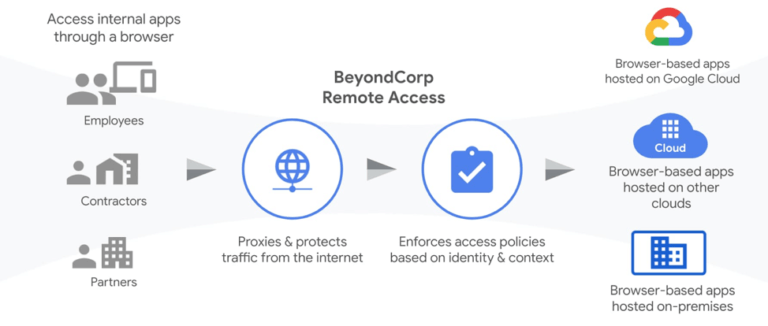

- BEYONDCORP VS ZERO TRUST HOW TO
- BEYONDCORP VS ZERO TRUST INSTALL
- BEYONDCORP VS ZERO TRUST VERIFICATION

BEYONDCORP VS ZERO TRUST VERIFICATION
Zero trust operates from the start by requiring verification from every user trying to gain access to resources, thereby authenticating users and regulating access to systems, networks, and data.

With zero-trust security, no one is trusted by default from inside or outside the network. This means someone with the correct credentials could be admitted to any network’s sites, apps, or devices.
BEYONDCORP VS ZERO TRUST HOW TO
This approach utilizes firewalls, VPNs, access controls, IDS, IPS, SIEMs, and email gateways with security on the perimeter that cyber criminals now know how to breach.

That includes the security agents being placed in the browser and embedded threat protection to detect malware.A standard network security posture is focused on stopping threats that come from outside the network perimeter, but can leave data vulnerable to theft inside the network. Google also said support for this enterprise security suite would be built directly in Google Chrome browsers. Flash forward, and Google says it has now expanded the tools available through BeyondCorp and so it is retiring the “Remote Access” part of the name in favor of “Enterprise.”Īmong the new capabilities, the Enterprise version will offer DDoS protection for a company’s entire attack surface, a verification platform for supply chains, improved protection against phishing attempts, end-to-end security between users and applications, automated management of SSL certificates, and additional features that can be added via partners such as Crowdstrike and Tanium. Then a few months later, Google announced an alliance to support the use of the zero-trust standard that is the core of BeyondCorp.
BEYONDCORP VS ZERO TRUST INSTALL
The centralized system meant there was no need to install and configure the software. Rather than using a VPN, BeyondCorp created a central database of all authorized devices and then distributed a matching security certificate for those devices. Last spring, Google released BeyondCorp Remote Access, a product designed to eliminate the need for costly and time-consuming setups of virtual private networks for employees working in remote offices or at home. “Living and breathing zero-trust for this long, we know that organizations need a solution that will not only improve their security posture but also deliver a simple experience for users and administrators.” “BeyondCorp Enterprise brings this modern, proven technology to organizations so they can get started on their own zero-trust journey,” Google Cloud Security vice president and general manager Sunil Potti said in a conference call with reporters.


 0 kommentar(er)
0 kommentar(er)
